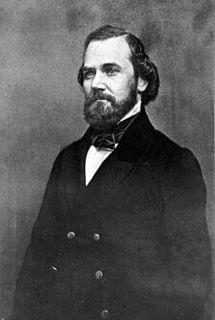A Quote by Marie von Ebner-Eschenbach
When two good men contend about principles, both are always right.
Related Quotes
There are two principles on which all men of intellectual integrity and good will can agree, as a 'basic minimum,' as a precondition of any discussion, co-operation or movement toward an intellectual Renaissance. . . . They are not axioms, but until a man has proved them to himself and has accepted them, he is not fit for an intellectual discussion. These two principles are: a. that emotions are not tools of cognition; b. that no man has the right to initiate the use of physical force against others.
In this world laws are written for the lofty aim of "the common good" and then acted out in life on the basis of the common greed. In this world irrationality clings to man like his shadow so that the right things get done for the wrong reasons - afterwards, we dredge up the right reasons for justification. It is a world not of angels but of angles, where men speak of moral principles but act on power principles; a world where we are always moral and our enemies always immoral; a world where "reconciliation" means that when one side gets the power and the other side gets reconciled to it.
When it comes to partisan politics, everyone is a hypocrite. And all they care about is whether it hurts or helps them ... Is it good or bad for the Democrats? Is it good or bad for the Republicans? Is it good or bad for Jews, or good or bad for blacks, or is it good or bad for women? Is it good or bad for men? Is it good or bad for gays? That's the way people think about issues today. There is very little discussion of enduring principles.
As both an essayist and science fiction and fantasy novelist, I write about and for the future. I talk about the past to remind us that what we believe has always been true - that men and women are somehow static categories, or that men in power has always been the default, or that same-sex love affairs were always taboo - has not always been thus.
The Palestinians have no other land. They are absolutely right about this. The Israeli Jews also have no other land and they are absolutely right about this. It is a tragedy of two peoples claiming the same very small country - very small, about the size of New Jersey. And both of them are right. Both of them have no other homeland as peoples. As individuals, maybe, but not as a people.
it was the United States which first established general suffrage for men upon the two principles that 'taxation without representation is tyranny' and that governments to be just should 'derive their consent from the governed.' The unanswerable logic of these two principles is responsible for the extension of suffrage to men and women the world over. In the United States, however, women are still taxed without 'representation' and still live under a government to which they have given no 'consent.
It's something that people who read my materials have asked me in the past. If you don't have principles - the last chapter of the book ["Win"] is all about winning with principles. It's all about applying words to good things, good people, good efforts. Without that inherent accuracy, then even the best words will still fail.



































